BY SEAN EGAN | With the last of summer’s bloated franchise films straggling out of theaters, the next few months will provide a welcome opportunity to wash the taste of undercooked sequels out of your mouth. Thankfully, there’s no better place on the island (or the globe for that matter) for film lovers to discover original new voices or revisit old favorites than Lower Manhattan. Programmers from four of the area’s premiere independent cinemas recently spoke with us, about their philosophies and what they’ll be presenting throughout the fall.
FILM FORUM| For many New York film buffs, it might be easy to take Film Forum for granted — after all, the venue’s been operating for nearly 50 years, since it was founded in 1970. But according to premieres co-programmer Mike Maggiore, the theater is having one of its best summers ever — perhaps due to the fact that he and his co-programmers try to reach both film buffs and a wider audience of cinemagoers.
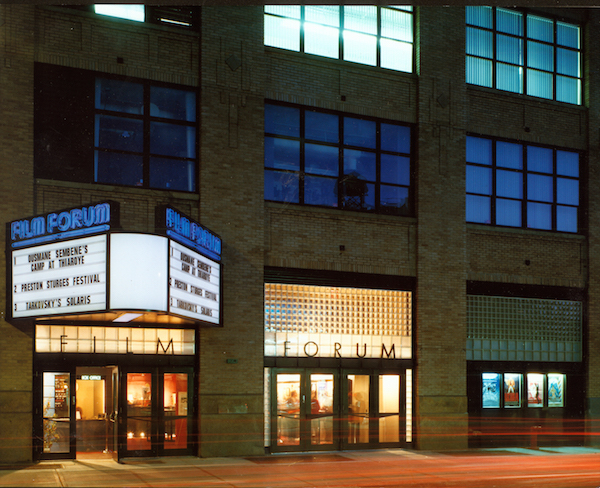
“We’re really trying to find what is interesting and provocative and exciting in world cinema today; films that really move or excite us, or kind of expand our knowledge and really explore or expose something that we find novel,” Maggiore explained.
To this end, Maggiore and longtime Film Forum director Karen Cooper scour the world, through festivals and screener links alike, viewing upwards of 700 films yearly. About 30 are selected for theatrical runs, and the venue has a distinct commitment to documentary (which account for about 70% of premieres).
Maggiore highlighted two soon-to be-released docs in particular: “Tower” and “Do Not Resist.” The former is a mostly animated examination of the first mass school shooting (1966, at the University of Texas). The latter concerns the militarization of police. Both are prescient in a way Maggiore couldn’t have planned. “There is a hunger for great documentaries, and audiences will come out to see something fascinating.”
Fall highlights of Film Forum’s narrative programming include the based-on-a-true-story “Christine” (Oct. 14), which, Maggiore noted, offers “a fantastic, electric performance by Rebecca Hall.” In December, Maggiore is looking forward to “Toni Erdmann,” a critics’ favorite at Cannes.
“If you were to tell me that there was an 162-minute German cringe comedy, and that it was one of the best films of the year, I might be skeptical, but this one definitely won me over,” he said with a laugh.
Bruce Goldstein, the director of Film Forum’s repertory programming, also knows a thing or two about long-game programming. “Basically I’m juggling, over many years, different projects that are always just floating, and we’re waiting for the opportune moment to do them,” he noted. As it stands however, his upcoming fall slate is pretty killer.
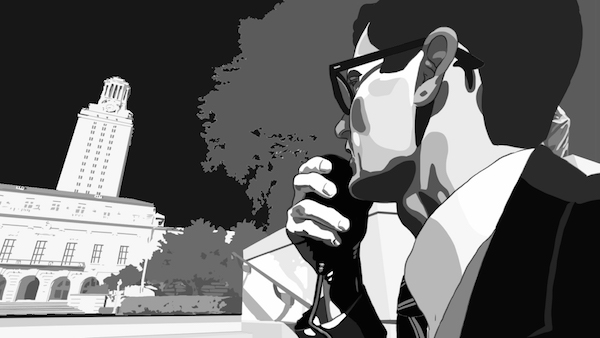
In the coming weeks, theatergoers will be treated to a Marx Brothers slate, a 3-D auteur program (featuring rare Hitchcock and Sirk prints), a Busby Berkeley retrospective, and, cheekily timed for election week, a series on “demagogues” (featuring titles like “Dr. Strangelove” and “The Great Dictator”).
“I wouldn’t just do a thematic series about world events, unless it lent itself to a fun series — and I think it is a fun series,” Goldstein assured. “Serious subject, but the films are individually entertaining.”
All this plays in conjunction with Goldstein’s regularly scheduled weekly Film Forum Jr. matinee program, designed to introduce kids to classics and foster a love of movies in a new generation.
“I hope that [audiences] feel they’ve experienced something here that they couldn’t get anywhere else in New York, and that they’ve visited a theater that cares deeply about movies,” said Maggiore on his aspirations for the venue.
“The big element that the theater offers, that you can’t get at home, or on a device is the audience, and sharing it with an audience — and that’s very important,” echoed Goldstein. “Take a classic like ‘Psycho;’ I don’t think it could have the same impact [at home]. What’s happening? Most people are looking at their Facebook accounts or whatever; they’re looking at Instagram while they’re watching. All those distractions, it’s just not the same.”
Film Forum is located at 209 W. Houston St. (btw. Varick St. & Sixth Ave.). Call 212-727-8110 or visit filmforum.org.
ANTHOLOGY FILM ARCHIVES | Even amongst the unique world of independent theaters, Anthology Film Archives is kind of a different beast. That’s because Anthology, which was founded in 1970 by experimental and avant-garde pioneers including Jonas Mekas and Stan Brakhage, is exactly what it says it is. In addition to being a theater, it’s an institution that houses an archival collection and serves as a center for film and video preservation and restoration work, with theaters equipped to present all of their programming on their original formats, from 35mm to VHS (and everything in between).
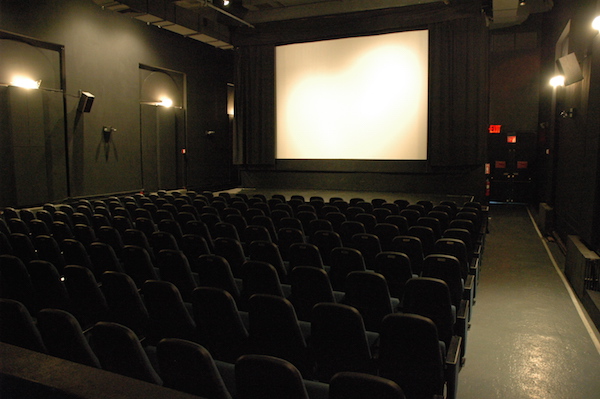
True to its roots, Anthology places a special focus on independent, experimental, and avant-garde films in their exhibition and preservation efforts (which often go hand in hand), especially ones that fly under the radar, or are in danger of being lost to time. It’s a philosophy that’s been in place since the early days of the theater, when the Essential Cinema — Anthology’s “foundational text,” according to programmer Jed Rapfogel — was drafted by its founders.
Left unfinished in 1975, the 330-title list was “an attempt to define the art of cinema,” and included usual suspects like Chaplin and Welles, while also emphasizing avant-garde directors like Brakhage, Michael Snow, Hollis Frampton, and Maya Deren. It’s an unchanging document that helped define avant-garde cinema, and whose titles are still played on constant rotation at Anthology.
“We add to the Essential Cinema in a philosophical sense by programming lots of other things,” Rapfogel noted. “But as far as the Essential Cinema goes, we don’t add to it.”
Upcoming programming attests to this — most specifically, the “Re-Visions” series, which takes a look at experimental filmmakers from 1975 to about 1990.
“Re-Visions,” Rapfogel noted, “is something that came out of a grant from the [Andy] Warhol Foundation, and it really just covers the preservation work we’ve been doing for about three or four years now. It basically funded a whole host of preservation projects, and the idea was to focus on the generation of avant-garde cinema after the Essential Cinema did take its final form,” said Rapfogel, who noted that he also tries to pair the restored films with modern work from the directors, as “most of these filmmakers are still alive, and most of them continue to make work.”
In the month of September, the series will focus on the work of Lower East Side filmmaker Bradley Eros, with future programs (continuing through early 2017) highlighting the works of artists like the late Peter Hutton.And starting on Sept. 15, Rapfogel’s scheduled another program that continues Anthology’s efforts to preserve and uncover important, overlooked works.
“The ‘Woman With a Movie Camera’ series is something that is gonna be really kind of amazing, a pretty broad survey of female-directed films, pre-1950,” he explained, asserting that while the program features selections by bigger names like Alice Guy-Blaché, it more prominently includes little-known and international films from the early era of motion pictures. “I think there are a lot of discoveries to be made there.”
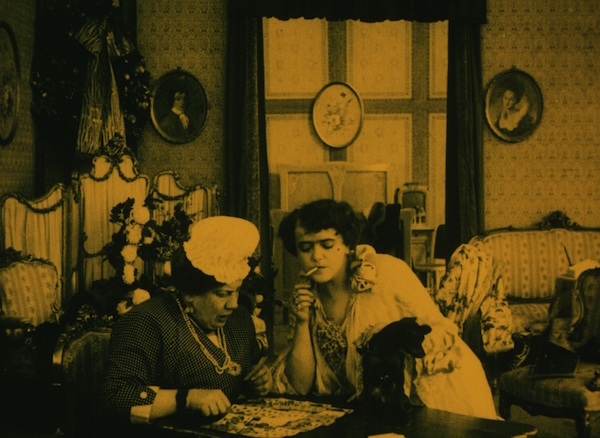
Going forward, Rapfogel has lined up a program for the 50th anniversary of the London Filmmaker’s Co-op, and, in October, a variety of programs that focus on horror, including a retrospective of Italian gore master Lucio Fulci.
“He’s best known as a horror filmmaker, but he made films in a crazy variety of genres,” said Rapfogel. “The idea is really to call attention to them.” He’s also letting the reins go for a bit, for a series called “Medium is the Massacre.”
“John Dieringer, who runs Screen Slate, he’s guest-curating a series, [that’s] kind of a blast, that’s going focusing on horror films in which media — cinema, TV, the Internet — play a major role in terms of the plot,” he revealed, noting such cult titles as “Videodrome” and “Poltergeist” would be featured.
Anthology Film Archives is located at 32 Second Ave. (at Second St.). Call 212-515-5181 or visit anthologyfilmarchives.org.
METRO GRAPH | Having first opened its doors this past March, Metrograph is the new kid on the block (especially compared to stalwarts like Anthology and Film Forum), but the Downtown venue has already made a name for itself with its idiosyncratic programming and a bold sense of style.
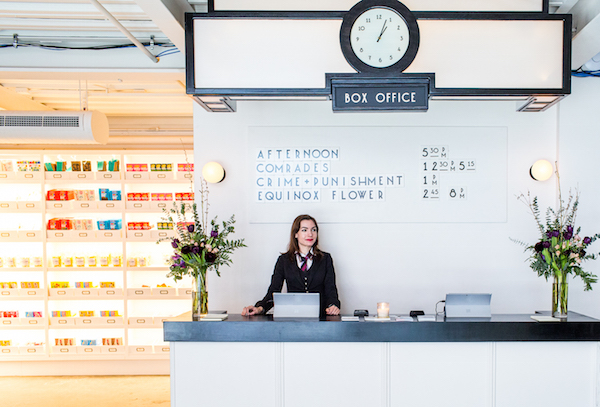
“I think the thing that sets Metrograph apart from other places that already exist in the city is just the personality that’s diffused throughout the entire identity of the cinema,” noted programmer Aliza Ma. “And by that, I mean the tangible aspects: the design, every element of the architecture, the aesthetics, all the way down to the programming.”
Stepping into the venue, the sense of style can’t be denied, from its retro-futurist bar and concession (and upscale dining room) to its wooden seats in the screening rooms. A quick glance at its schedule, which features a mind-boggling array of 35mm screenings, also confirms Ma’s claims.
“I feel like within the last 10 years, film, it went from being the dominant industry format to almost becoming sort of a museum rarity,” Ma asserted. “There’s a certain connectivity between distribution, archiving and exhibition, and our hope is that drop by drop, our efforts to continue exhibiting film will affect some kind of change.”
Nowhere is this commitment to 35mm more apparent than in the retrospective programs, which Ma conceives and executes with her co-programmer Jake Perlin.
“[Our process is] pretty much what you might do if you just wanted to brainstorm a bunch of programs. We have a board where we write all these ideas that might be really cool,” she explained. The results have been wide-ranging and eclectic, from their Robert Aldrich retrospective (starting Sept. 15) to their “Queer ’90s” series (Oct. 5), which is “meant to survey a time when the visibility of queer characters became more prominent in every aspect of cinema,” and capitalize on the sense of ’90s nostalgia Ma has observed Downtown.
The current programming centerpiece is “Welcome to Metrograph,” where the programmers select favorites in alphabetical order. Sept./Oct. find the alphabetized amalgamation hitting M and N for titles.
“It’s a total extension of our personality,” Ma said, noting the only context for the films is the cinema they’re playing in. “With ‘Welcome to Metrograph,’ it’s almost like we thought of it so intuitively, and we thought of it because we didn’t want to establish a new canon or even an anti-canon. And I really dislike the listicle culture that is so pervasive now, so we were like, ‘What if we just listed films that we really like alphabetically?’ And now it’s like a joke that’s gone, like, so far that we have to carry it out completely.” The selections run the gamut from George Miller’s “Mad Max” to Chantal Ackerman’s “News From Home.”
In addition to series, starting Sept. 8, the theater is giving a full theatrical run to a new 35mm print of 1982’s “Chan is Missing.”
“It’s such a landmark Chinese-American film, which is different from a Chinese film,” said Ma. “It’s as American as a John Ford western, but it’s made wholly of the Asian-American experience, and it’s this sort of interesting play on the legacy of film noir.”
Nonetheless, Metrograph still has a commitment to presenting adventurous new releases. Ma’s particularly excited about the release of “Little Sister,” a film about a present day 20-something nun visiting her family. “We thought it was such a really sweet film about family, it’s kind of playful and also very moving,” described Ma. Around Halloween a feature called “Creepy” will premiere, hailing from Kiyoshi Kurosawa, “a veteran Japanese horror director” returning to his roots.
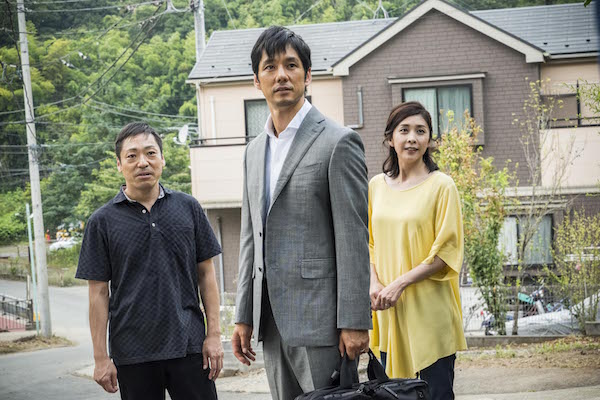
“Hopefully people will trust us enough to take a chance on something they’ve never heard of before,” Ma said. “I’m hoping that the programming and the way that the cinema is laid out will open up the possibility of people associating really great filmgoing memories with Metrograph.”
Metrograph is located at 7 Ludlow St. (btw. Canal & Hester Sts.). Call 212-660-0312 or visit metrograph.com.
IFC CENTER | Sitting somewhere between the fresh-faced eagerness of Metrograph and the elder statesmen of Film Forum and Anthology lies IFC Center, which has been drawing people in from the West 4 Street subway stop since it opened in 2005.
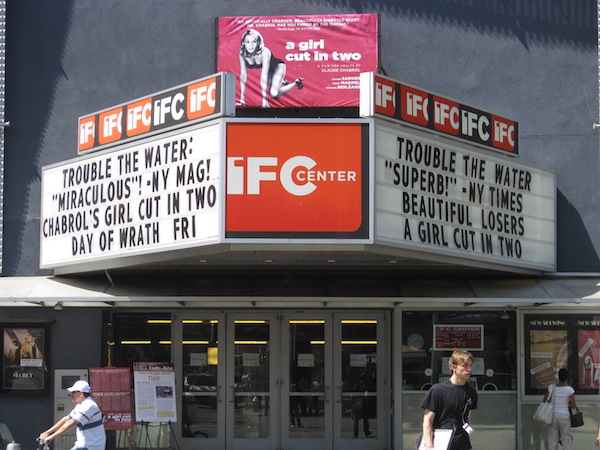
“We’re in such a fortunate position in Downtown New York,” said John Vanco, general manager of IFC. “[The area] is so diverse and so dense that really outstanding cinema, even if it’s challenging, even if it seems to appeal to a narrow constituency, even if the cinema itself is kind of difficult and its rewards seem obscure and hard to pull out — quality is very much rewarded by audiences here. And so we are able to be ambitious with our programs.”
Vanco credited their strength as a theater to the careful selection of new releases (often led by positive critical notices) and their select retrospective runs (such as their currently running program of Keilslowski’s epic “Dekalog”).
A glance at the fall slate is something of a who’s who of working independent directors, including “Certain Women” by Kelly Reichardt, Ava DuVernay’s “The 13th,” Herzog’s “Into the Inferno,” and André Téchiné’s new film.
Vanco’s particularly proud of their documentary slate — including DOC NYC. That November fest is the largest documentary showcase in the country, and will open this year with “Citizen Jane: Battle for the City,” about urban planning activist Jane Jacobs’ battle with NYC builder Robert Moses.
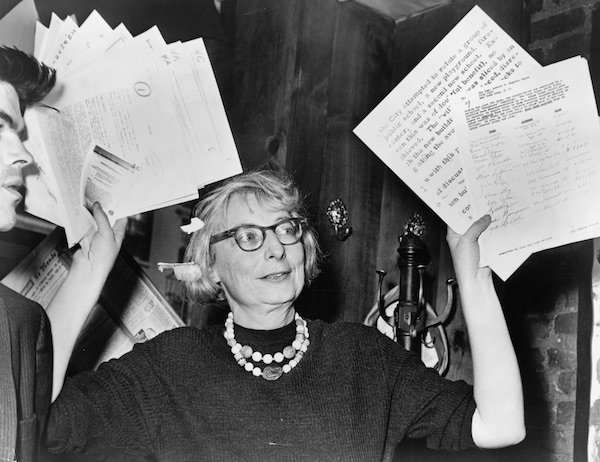
The release Vanco is most excited about is “Fire at Sea,” and with good reason — the refugee doc took home the top prize at the Berlin Film Festival. “It puts such a human face on what could otherwise seem like a dry, political debate, and instead this movie turns it into this very real kind of emotional set of stories about people who are trying to keep their children alive, and trying to just get from day to day,” he commented.
While new releases are the theater’s forte, they do maintain the robust series “Weekend Classics” and “Waverly Midnights” for cult films. “[There’s] a repertory of movies that people just want to see time and time again on the big screen, so you know, that’s something that’s, I think, an important part of being a neighborhood cinema.”
Another hallmark of IFC is their frequent Q&A sessions with directors, writers, and actors, as well as other assorted talks.
“I think we do more in-person events than any other theater, and it’s really a priority for us,” Vanco explained. “It’s really kind of evolved into this core part of what we do, and it’s really a community building project.”
“In New York, the greatest and most creative and most curious and most ambitious film artists in America all come together here,” he elaborated. “It’s a real responsibility of ours to kind of be a place where they can gather and support each other.”
However, Vanco was also sure to note that this sense of duty extends beyond just IFC, and is thankful that other independent cinemas exist in the area.
“IFC needs those other theaters to help raise the bar for the New York cinema because we need a new crop every year of new people coming in, young people coming in to celebrate these cinemas,” Vanco observed.
“I think New York needs a variety of different kinds of cinemas that are all ambitious in their kinds of areas, because what New York needs to be is a kind of an island,” he continued. “It’ll mean that when movie-mad 17, 18, 20, 25-year-olds come out from the rest of the country trying to figure out how they can do something in video or film, we want them to keep being drawn to New York. I mean, that’s what drew me to New York, is seeing, like, ‘Wow, all these different movies are actually on the big screen in New York, this weekend? How is that possible?’ Because the rest of the country, there’s just no place else that has this.”
IFC Center is located at 323 Sixth Ave. (at W. Third St.). Call 212-924-7771 or visit ifccenter.com.

































